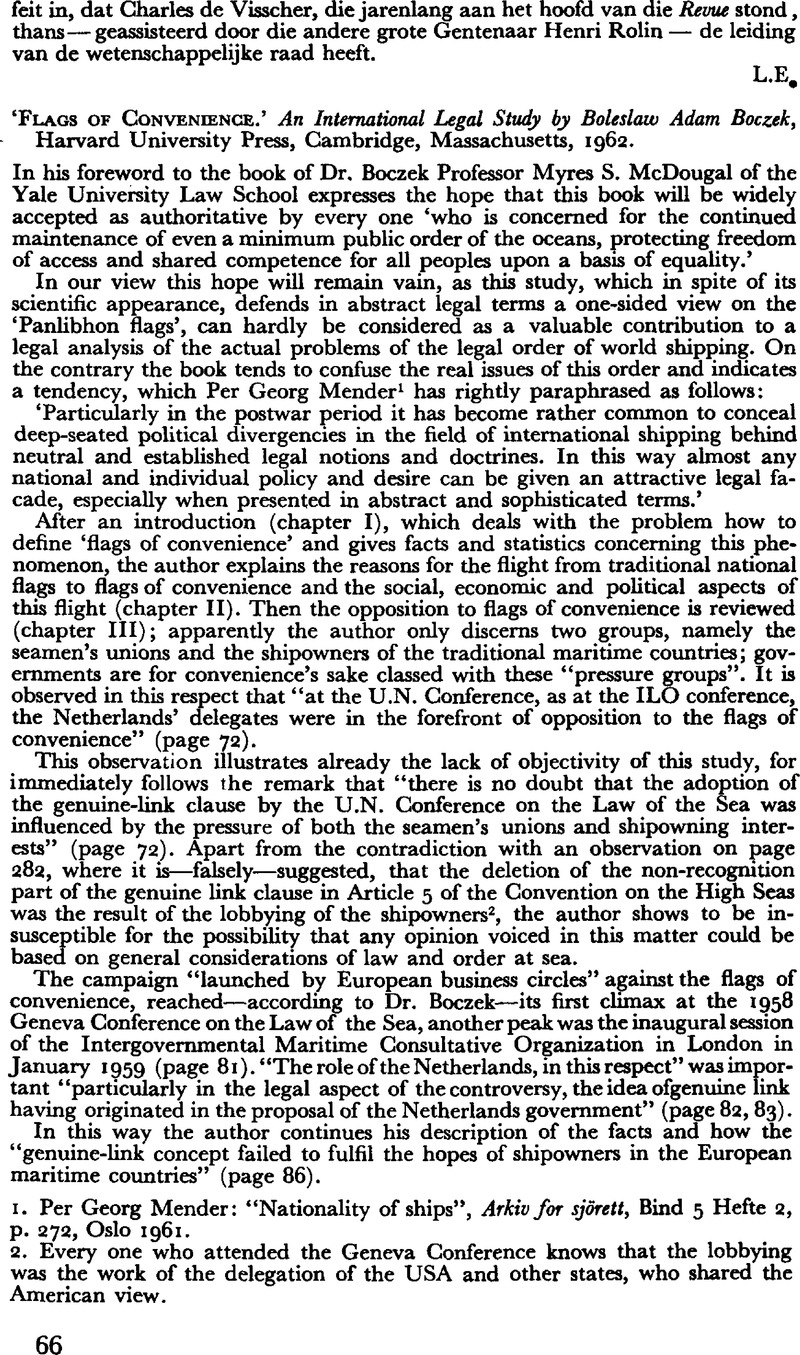No CrossRef data available.
Article contents
‘Flags of Convenience.’ An International Legal Study by Boleslaw Adam Boczek, Harvard University Press, Cambridge, Massachusetts, 1962.
Published online by Cambridge University Press: 21 May 2009
Abstract

- Type
- Boekbesprekingen—Bookreviews
- Information
- Copyright
- Copyright © T.M.C. Asser Press 1965
References
page 66 note 1. Mender, Per Georg: “Nationality of ships”, Arkiv for sjörett, Bind 5 Hefte 2, p. 272, Oslo 1961.Google Scholar
page 66 note 2. Every one who attended the Geneva Conference knows that the lobbying was the work of the delegation of the USA and other states, who shared the American view.
page 68 note 1. Mender, Per Georg: “The “genuine link” doctrine thus came to express the view that the rationale of the traditional “flag doctrine” is the substantive test, not its formal evidence.” op. cit., p. 336.Google Scholar
page 69 note 1. The same view is expounded by Heinrich Schulte: Die “billigen Flaggen” im Völkerrecht, Zur frage des “genuine link”, Abhandlungen der Forschungsstelle für Völkerrecht und auslöndisches öffentliches Recht der Universität Hamburg, 1962.
page 69 note 2. See Schulte, Heinrich, op cit., p. 125Google Scholar, who deals at length with this question and comes to the conclusion that the text of article 5 clearly excludes an interpretation as given by Dr. Boczek.
page 70 note 1. Netherlands International Law Review 1959, 116–118.Google Scholar
page 70 note 2. Mender, Per Georg: “A logical analysis of the text in the form submitted to the Geneva Conference compared with the one adopted will show that the substance is exactly the same whether the phrase is deleted or not. Since the second is but a further definition of the first, the first phrase may well be omitted without any effect on the meaning of the principle expressed.” op. cit. p. 356.Google Scholar
page 70 note 3. McDougal, , Burke, and Vlasic, “The Maintenance of Public Order at Sea and Nationality of Ships,” 54 American Journal of International Law (1960), p. 25.CrossRefGoogle Scholar




